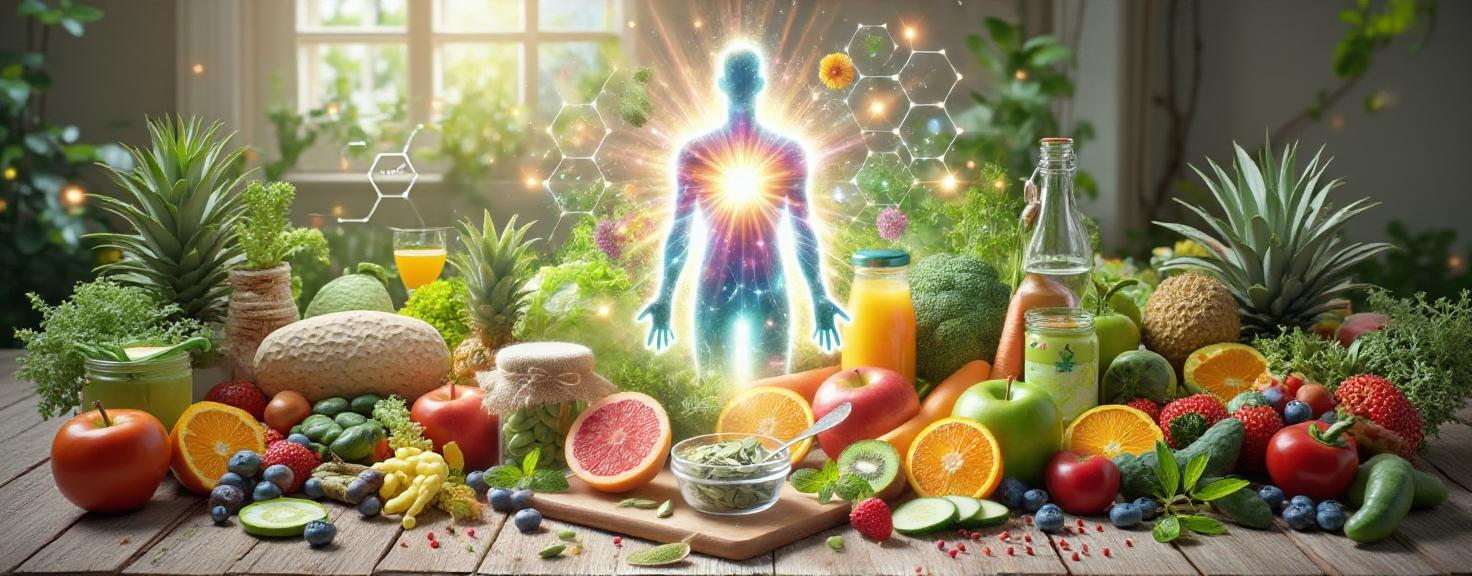- Blogs
Vitamins and supplements for healthy eyes and better vision

What is beauty if there were no eyes to behold it! Eyes are essential sense organs that help to see the wonderful world around you. But some diseases and lifestyle practises may lead to deterioration of eye health and temporary or permanent loss of vision. To keep your eyes in optimum health, certain measures can be taken like intake of healthy nutritious foods, regular eye health check-ups, eye exercises and taking certain vitamins for eyesight or eye supplements that boost eye health.
Some of the most common diseases affecting eye health and vision include:
- Cataracts
- Age-related macular degeneration (ARMD)
- Diabetic retinopathy
- Xeropthalmia
- Night blindness
- Dry eye syndrome
- Glaucoma
Although medical advice and intervention are necessary for treating such conditions, there are certain vitamins for eyesight, that when consumed in the right proportion, can be beneficial for eye health and better vision. It is sometimes difficult to include the appropriate quantity and quality of food sources of these vitamins and nutrients in daily diet, which is why eye supplements can also be considered to improve eyesight. Now, let’s take a quick look at some of the most important vitamins and other nutrients that are essential for eye health.
B complex Vitamins
These are water-soluble vitamins that are excreted by the body if consumed in excess and hence have to be replenished daily. These include the following vitamins:
Vitamin B1 (thiamine)
This vitamin can help prevent the development of Cataract and reduce the chances of Retinopathy (blindness) in individuals with diabetes. Its common food sources include whole grains, meat and fish.
Recommended dose for healthy adults: 1.4 mg per day
Vitamin B2 (riboflavin)
This vitamin plays an important role in protecting our eyes from the damaging effects of free radicals and maintaining antioxidant levels. It can help in reducing the risk of cataract. It is found in milk and milk products, oats, beef and fortified cereals.
Recommended dose for healthy adults: 2 mg per day
Vitamin B3 (niacin) and B5 (pantothenic acid)
Vitamin B3 has shown the potential to slow the progression of glaucoma in a clinical trial conducted by the Centre for Eye Research, Australia.
Vitamin B5 (Pantothenic acid) accelerates the process of wound healing and is even commonly used in eye drops and gels. Food sources for both these nutrient include meat, legumes, fortified cereals, nuts and seeds.
Recommended dose for healthy adults:
Vitamin B3 (niacin): 14 mg per day
Vitamin B5 (pantothenic acid): 5 mg per day
Vitamin B6 (pyridoxine), B7 (biotin), B9 (folic acid) and B12 (cobalamin)
These vitamins for eyesight help in protecting the cells in the eyes by reducing blood homocysteine levels and preventing cell death. Homocysteine inhibits collagen synthesis which forms an essential component of various parts of the eye like the cornea, sclera, and lens. Homocysteine also affects blood vessels of the eyes and may cause various diseases like retinal artery/vein occlusion, diabetic retinopathy and age-related macular degeneration. These nutrients are commonly found in dairy and its products, greens, organ meat, fish and nuts.
Recommended dose for healthy adults:
Vitamin B6 (pyridoxine): 1.9 mg per day
Vitamin B7 (biotin): 40 mcg per day
Vitamin B9 (folic acid): 300 mcg per day
Vitamin B12 (cobalamin): 2.2 mcg per day
Vitamin A (retinol)
It is a fat-soluble vitamin, which means that it can be is stored in the body for use later. Its deficiency leads to certain conditions like xeropthalmia and night blindness. Its optimum intake may prevent such diseases as well as other conditions like ARMD and cataract. It is found in egg yolks, fish, green leafy vegetables, pumpkins, sweet potatoes, carrots and fruits like papaya and mangoes.
Recommended dose for healthy adults: 1000 mcg per day
Vitamin E (tocopherol)
It is also a type of fat-soluble vitamin. It is a very potent antioxidant that protects the eyes from the deleterious effects of free radicals. It helps in preventing ARMD. It is found in nuts, seeds and cooking oils.
Recommended dose for healthy adults: 10 mg per day
Vitamin C (ascorbic acid)
Vitamin C is a type of water-soluble vitamin. It is a powerful antioxidant that helps in collagen synthesis in various organs including the eyes. It may help in reducing the risk of inflammation in the eyes. It is found in citrus fruits, bell peppers, broccoli and kale.
Recommended dose for healthy adults: 80 mg per day
Omega-3 fatty acids
The two important types of omega-3 fatty acids are docosahexaenoic acid (DHA) and eicosapentaenoic acid (EPA). They help in the development of Retina Cells and play an anti-inflammatory function, thus helping in regenerating and healing the retina and cornea. Its deficiency may lead to dry eye syndrome, ARMD and retinopathy. Its common food sources include fish and certain marine algae. .
While there is no specified recommended dose for Omega 3 fatty acids, however, 250 mg to 500 mg each of EPA and DHA per day is usually suggested for healthy adults.
Zinc
It is an important trace mineral that plays a crucial role in eye health. It is present in high amounts in the macula region of the retina and also involved in the formation of eye pigments. A chronic zinc deficiency can cause night blindness. It is found in oysters, meat, lobster and baked beans.
Recommended dose for healthy adults: 17 mg per day
Lutein and Zeaxanthin
These are carotenoids which are potent antioxidants that help protect the eyes from free radicals. There has been research to help understand the role of these carotenoids against ARMD, cataracts, diabetic retinopathy, retinal detachment and uveitis. They are naturally found in high amounts in cooked spinach, kale, corn and collard greens.
Recommended dose for healthy adults:
Lutein: While there is no defined recommended dosage, research studies suggest that one can go upto 25 mg lutein in a day. The benefits of this nutrient are observed at 10 mg dosage as well.
Zeaxanthin: 4 mg per day
Astaxanthin
Astaxanthin is a red pigment that also belongs to the group of carotenoids. It is usually found in micro algae and in seafood such as shrimps, lobsters etc. Astaxanthin has been shown to have a positive outcome in most eye-related diseases by protecting against cellular damage.
Recommended dose for healthy adults: 2 to 12 mg per day
Bilberry
Bilberry contains the active component anthocyanosises that have very good antioxidant and anti-inflammatory properties. It is believed that Bilberry extracts improve eye health and vision as well. It is suggested that Bilberry renders eye health benefits in cases of glaucoma. The active component of Bilberry can be found in other berries, chocolate as well as nuts and seeds.
Recommended dose for healthy adults: Clinical trials suggest doses of 120 mg being effective for eye health.
TIPS FOR EYE HEALTH
Including foods rich in the above-mentioned vitamins and nutrients can greatly help in improving your overall eye health. You can also consider having eye supplements regularly within the prescribed limits to enhance your vision. Apart from that, there are certain measures, tips and precautions that must be kept in mind to protect your eyes and improve eyesight.
- Always follow a well-balanced diet containing plenty of fruits and vegetables
- Drink plenty of water
- Go for a detailed eye examination, every couple of years
- Protect eyes from ultraviolet rays by wearing sunglasses when outdoors.
- Avoid polluted/dusty environment
- Blink and take breaks to focus on distant objects every 20 minutes if you are continuously occupied on the screen
Improved vision enhances the quality of your life. Taking the right measures from an early age can help in slowing down the deterioration of eye health due to age and other factors.



